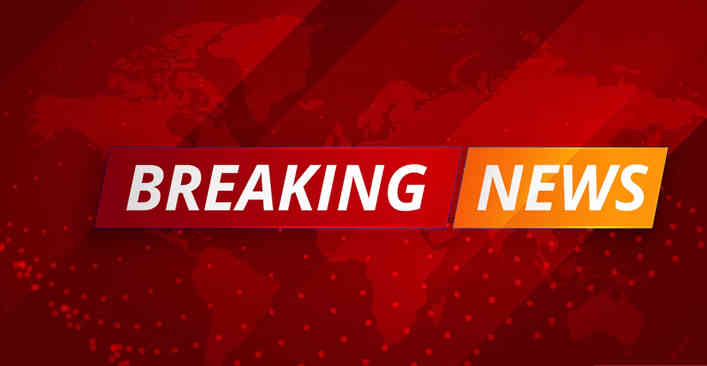BREAKING: J.P. Morgan warns investors against risks of investing in Nigeria amid oil slump, Trump tariff fears
- Advertisement -
As Nigeria battles to stabilize its economy amid challenging global conditions, J.P. Morgan, one of the world’s leading investment banks, has issued a stark warning to investors. The bank is urging investors to exit long positions in Nigerian Open Market Operation (OMO) bills, citing rising macroeconomic risks triggered by declining crude oil prices and renewed global trade tensions—including a tariff push by former U.S. President Donald Trump.
This development comes at a time when Nigeria’s economic managers are striving to maintain market confidence and sustain momentum from ongoing reforms.
Why J.P. Morgan Is Sounding the Alarm
In a research note titled “Frontier Local Markets Strategy: Reducing Risk Further,” dated April 9, 2025, J.P. Morgan highlights the changing global environment that threatens Nigeria’s macroeconomic outlook. The note was seen by Nairametrics, a leading financial publication in Nigeria.
- Advertisement -
The bank’s major concerns include:
- Brent crude oil approaching sub-$60 per barrel, below Nigeria’s estimated fiscal break-even.
- Increasing global trade tensions, notably due to Trump’s potential return to power and tariff policies.
- Capital flight and weakening demand for Nigerian government securities.
Summary of JP Morgan’s Core Message:
“While Nigeria may well avoid a recession, oil prices below $60/bbl could push the country’s current account into deficit, intensifying pressure on the naira and FX market.”
The Central Bank’s Position and Reassurances
The Central Bank of Nigeria (CBN) recently assured the public of its ability to withstand global economic shocks. It announced:
- Advertisement -
- A net foreign reserve of $23 billion.
- A balance of payment surplus of $6.83 billion at the end of 2024.
- Plans to boost non-oil FX earnings through enhanced export diversification.
However, JP Morgan’s analysis suggests that these positives may be short-lived if global oil prices continue to fall. The Nigerian economy, heavily reliant on oil exports, is vulnerable to external shocks that affect crude oil demand and pricing.
Nigeria’s Oil Dependence – A Structural Weakness
Despite diversification efforts, oil remains Nigeria’s largest foreign exchange earner. The breakeven point for the Nigerian budget is estimated at $60 per barrel. With Brent crude slipping dangerously close to that level, any sustained dip could lead to:
- Widening current account deficits
- Depleting FX reserves
- Heightened pressure on the naira
J.P. Morgan has warned that if these conditions persist, the USD/NGN exchange rate could surpass ₦1,700/$1, compared to the current average of ₦1,500/$1.
- Advertisement -
Market Reactions: Capital Flight and FX Pressures
As part of its defensive measures, the CBN injected $550 million into the FX market in March 2025. Nairametrics estimates that interventions this month have exceeded $1 billion, highlighting the scale of pressure the CBN is managing.
Despite this, foreign portfolio investors are reportedly pulling back, with J.P. Morgan estimating potential outflows of up to $10 billion—a figure that underscores the fragility of investor sentiment.
Table: Capital Flight Risk Indicators
| Indicator | Status (Q2 2025) |
|---|---|
| Oil Price (Brent) | ~$60/barrel |
| USD/NGN Exchange Rate | ₦1,500 – ₦1,620 |
| Estimated Capital Outflows | $10 Billion |
| FX Market Interventions | > $1 Billion (April 2025) |
Fraud and Banking Sector Concerns
Compounding Nigeria’s economic challenges, local banks reportedly lost ₦42.6 billion to fraud in Q2 2024, surpassing losses for the entire year of 2023. This reflects not only cybersecurity weaknesses but also declining public trust in the financial system during periods of economic stress.
- Advertisement -
Liquidity Issues in Local Bond and T-Bill Markets
J.P. Morgan also flagged issues in Nigeria’s local fixed-income markets. OMO and T-bill markets are facing:
- Rising yields (up by 300 basis points)
- Weak demand
- Investor hesitation, attributed to FX concerns and inflation risks
Table: Local Market Trends – Q2 2025
| Market Instrument | Yield Increase | Investor Sentiment |
|---|---|---|
| OMO Bills | +300 bps | Risk-off, low demand |
| Treasury Bills | +250 bps | Preference for USD |
To stabilize the markets, the CBN has been injecting liquidity and participating in auctions to prevent failed bids and maintain investor confidence.
Trump’s Tariffs: A Wild Card for Emerging Markets
Another looming threat is geopolitical: Donald Trump’s re-emergence as a top contender in the U.S. 2024 elections. His proposed global tariffs could spark a renewed trade war, hitting emerging markets like Nigeria the hardest.
If global demand contracts and commodity prices weaken, emerging market assets may lose appeal. J.P. Morgan sees this as an additional reason to reduce exposure to frontier market securities, including Nigeria’s.
Nigeria’s Reform Path: Is There a Silver Lining?
Despite the near-term risks, J.P. Morgan maintains some optimism about Nigeria’s medium-term outlook, provided reforms stay on track.
Positive policy directions include:
- Unification of the FX rate
- Fuel subsidy removal
- Reform of the Nigerian National Petroleum Company Limited (NNPC)
- Tax reform and domestic revenue mobilization
The government has also committed to market-driven exchange rates and broader economic diversification.
Time for Strategic Caution and Long-Term Thinking
J.P. Morgan’s message is clear: Nigeria remains a high-risk, high-reward market. With falling oil prices, weak investor sentiment, and political uncertainty on the horizon, the short-term risks are mounting.
However, Nigeria’s long-term prospects could improve if:
- Oil prices rebound
- Policy reforms deepen
- External reserves are sustainably boosted
- Investor confidence is rebuilt
Investors and policymakers must now strike a delicate balance between caution and confidence as Nigeria navigates this storm.
Follow us for more breaking updates on Nigeria’s economy, markets, and investment trends.
- Advertisement -


